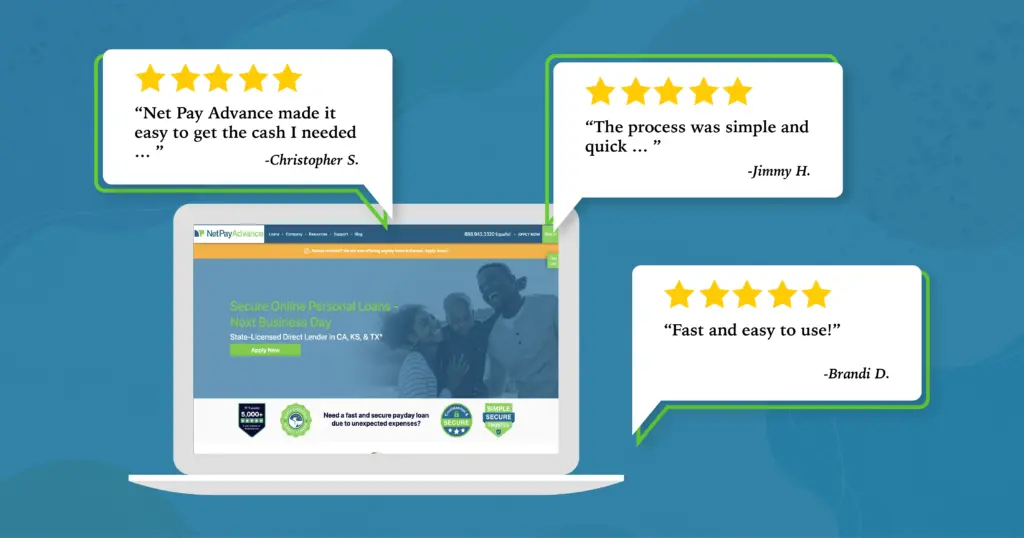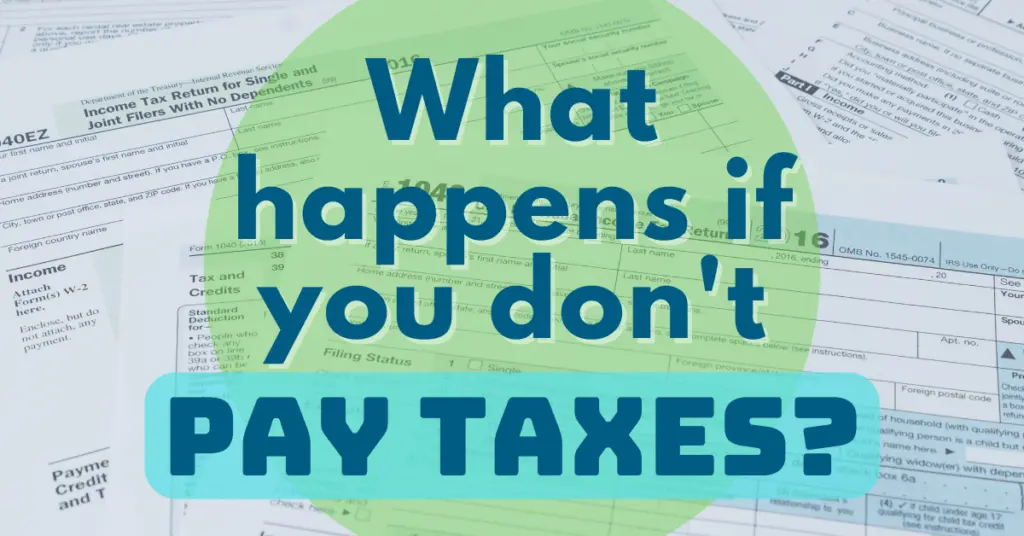A realistic overview of the consequences when you don’t pay taxes
In life, there are consequences and ramifications of our actions. One such scenario is when someone doesn’t file or pay taxes. Several things could potentially happen under those circumstances, and I am here to help you navigate through this situation.
Yes, it is indeed that time of the year! Everyone is either scrambling to finish up their taxes or soliciting professional help to do the same. This is true for individuals and businesses alike. Tax season isn’t everyone’s favorite. It sure isn’t mine! However, life is usually a good mix of fun and frustrating elements.
Now, regardless of why you skipped paying your taxes, it is only natural to want to know the consequences if any. Luckily, I have been through some tricky tax situations myself and have lived to tell the tale.
Everyone that earned an income is subjected to taxes. Sometimes, one may not owe anything but could get a refund on taxes they paid all year. Or they might owe additional taxes to the IRS (Internal Revenue Service). Whatever be the case, not paying the taxes that you owe can trigger some serious reactions. If you’re wondering what happens if you don’t pay taxes, I have the answers for you. For starters, the IRS could send you a letter with a small fine. There is the possibility of the fine becoming hefty as time goes by and interest accrues.
Apart from monetary consequences like fines, the IRS has the power to legally claim your assets and seize them. As terrifying as that sounds, it is a harsh reality for several people who have evaded taxes. The worst case is jail time; however, it is extremely rare. Always know that the IRS just wants the money and has very little interest in putting someone in jail. Most people arrested for tax evasion usually owe millions of dollars in taxes or have committed serious tax offences like falsifying documents, overriding bookkeeping numbers, employing undocumented workers, etc.
What happens if you pay taxes late?
Depending on the type of employee (W2 or 1099) you are, you make tax payments to the IRS throughout the year. Full-time and part-time employees receive a W2 tax document from their employer while self-employed individuals require a 1099 form. W2 employees are subjected to automatic withholding from their paychecks while 1099 employees have to file and pay. When you file your taxes, you will see if your tax payments were sufficient to cover the actual tax amount owed. If you overpaid, you get a refund and if you paid less, you receive a tax bill.
We recommend making a payment in case you owe taxes. In case you don’t pay, the IRS will send you a notice. If you still haven’t paid, a second notice might be headed your way. It is vital that you know that unpaid taxes accrue both penalties and interest. The current interest rate is 5%. It is compounded daily to the unpaid balance starting on the due date mentioned in the IRS notice.
In addition to interest, you are charged penalties by the IRS. These penalties are 0.5% per month and can go up to 25% of the unpaid amount. Continuing to default on payments can result in the unpaid balanced being deducted from future tax refunds. Be aware of the fact that the IRS can place a lien on your assets.
A lien can be explained as the government’s legal claim against your assets or properties when you fail to pay a tax debt. In time, a lien could become a levy which basically allows the IRS to seize your assets to pay for the balance owned.
Tax evasion can lead to jail time, but it is highly unlikely as we’ve mentioned earlier. However, if several years have passed, there is a chance that you’ve been spared by the luck factor. This is because there is a 10-year statute of limitations on collecting taxes.
Additional consequences of not paying taxes
The IRS might summon you to a local office. You will be asked to confirm your information and file your tax return right there in-person. Also, if the total amount you owe the IRS is $54,000 or more, the government will decline to issue or renew your passport.
Sometimes, the IRS transfers accounts to a private collections company. This might happen if you skip paying taxes.
What to do if you can’t pay taxes?
I understand that life often throws curveballs and one’s finances can take a hit. If this is your case and you find yourself unable to pay taxes, there are a few options. I was in this pickle years ago. I swallowed my pride and asked my folks for help. They were very generous, and I am grateful for that. However, that might not be an option for everyone.
If friends and family are unable to extend help, your next best bet would be to take out a short-term loan from Net Pay Advance. The best part is that they don’t judge you for bad credit. They also don’t run hard credit checks. The entire process is smooth, simple, and easy! Take a look at what customers have to say:

If you still can’t pay your taxes, I suggest you inform the IRS. I know, I know, it sounds intimidating. Believe me, the IRS just wants you to pay, and they aren’t actively trying to punish you. You might be eligible for an installment agreement, which is essentially a payment plan. You will be able to make monthly payments and avoid risks like lien, levy, or jail.
There could be an amount of tax liability that the IRS might require you to pay before offering you an installment agreement. You will still owe penalties and interest, but the penalty rate is lower when you’re on a payment plan. Also, consider paying off your state and local taxes first if your state has higher penalties and interest rates. Remember that missing a payment on your installment agreement will result in you having to pay the entire balance plus penalties and interest as a lump sum.
Another option is to request the IRS to lower your tax bill if you pay off the reduced amount in one payment. This is called an offer in compromise. This is usually done for those considered low-income earners and may not be eligible for those with higher income levels.
The IRS Fresh Start Program
The IRS offers a range of debt relief options that are collectively known as the IRS Fresh Start Program. It is aimed to relieve taxpayers from tax debt and penalties. This program was launched in 2011 to help taxpayers get back in good standing while avoiding liens, levies, and jail. It allows the IRS to collect whatever they can instead of nothing.
You might be allowed to pay off your dues in smaller installments or you might be able to freeze your debt. Depending on the financial situation of an applicant, there are various levels of relief options. A tax professional will be able to advise which option is the best one for you depending on your specific situation.
The IRS Fresh Start Program Qualifications
Although the program is designed to be inclusive and for everyone, there are a few requirements a taxpayer must fulfil in order to be eligible. They are:
- Applicant must be self-employed and be able to prove 25% drop in net income
- Applicants are joint filers who annually earn $200,000 and under
- Applicant is a single filer with annual income not exceeding $100,000
- Applicant’s tax balance is under $50,000 before year end
The IRS Fresh Start Program: How it Works
This program offers a way to settle your dues with the IRS and avoid serious consequences like liens, levies, jail etc. If you’re interested in the program, you will need to submit all necessary paperwork to the IRS. The next step would be to set up a plan to take care of your debt. It could be monthly payments, deferred payments, or paying a lump sum. I strongly suggest getting the help of a tax consultant or expert to help you navigate through the various plans under the IRS Fresh Start Program and pick one.
For more information, consult this resource.
Final thoughts:
Taxes are just about as appealing to me as dental appointments! Would I like to skip them? Absolutely! Should I skip them? No, never! It is never a smart move to avoid paying taxes. You are accountable for every dollar you earn and there are ramifications for not doing your due diligence when it comes to taxes.
It is understandable that one might have a lot on their plate and could simply forget to file taxes. That’s why the IRS sends you notices. You get a few opportunities to regain control of the situation before things begin to unravel. It is tense and anxiety-inducing to most people including me. The golden rule should be to pay your taxes as soon as you can because who enjoys fines and penalties? Not me!
At Net Pay Advance, we constantly strive to offer financial information and insights to everyone. We advocate for financial literacy in our society. Feel free to check out our free resources and implement them in your daily life. If all fails, Net Pay Advance would be happy to extend a short-term loan to you so that you can avoid the consequences of avoiding tax payments. Apply today!

